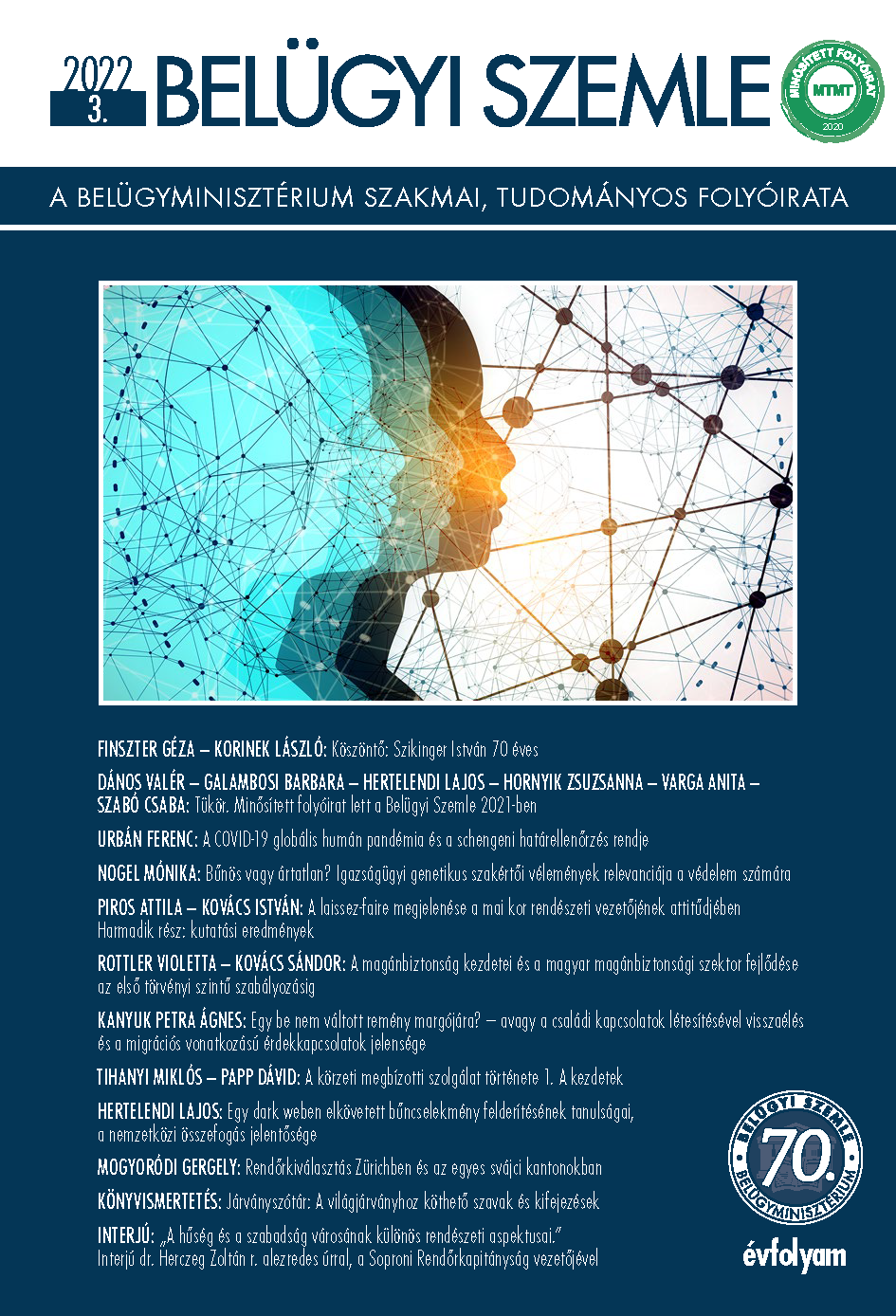Abstract
Aim: A number of articles with criminal and forensic lessons have already been published in Belügyi Szemle. The “Interesting Crimes, Instructive Investigations” section, which was relaunched as an old-new column, was born under the auspices of the Editorship in several respects as a special and forward-looking idea. In the course of their work, the editors themselves encountered many events that were later put on paper by professional criminal colleagues, and most of these cases provided a good basis for a descriptive or empirical study that contributed to prepare the prospective investigators or to process the case from a legal point of view. An additional goal has been formulated - similarly to the case descriptions published in the previous column of Belügyi Szemle - to ensure that the studies published within the framework of the new section can be utilized in criminal law and forensic seminars. The author intends to play a kind of gap-filling role with the restart of the column, thus to contribute to a more practice-oriented preparation of law enforcement and law students.
Methodology: The study is an analytical and descriptive theoretical research that presents the dimensions of the examined case study. Findings: By publishing this study, the author describes an interesting crime and its detection that may be of interest to the public, but that readers, researchers, and students may also benefit from processing and analysing the case. To identify the new acts, the society, the police, politics have created new words and phrases: hacking, child pornography, phishing, dark web, malware.
Value: The case report deals with a specific crime, taking into account the legal assessment and investigation of the acts committed, the successful detection, and the lessons to be learned. In the present study, the author presents behaviours named in the Penal Code for which the use of cyberspace is not necessary, but additional forms of behaviour that can be punished may emerge from the acts already committed.

